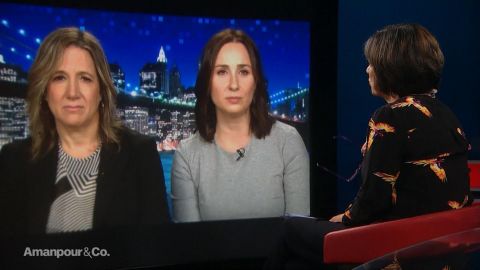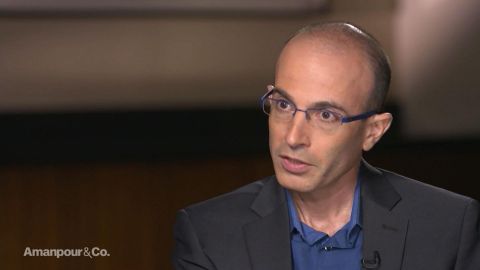Read Transcript EXPAND
ROBIN POGREBIN: I mean, I think what’s been difficult here I nobody was entirely clear on what the brief was from the president originally and then we reported that it was only four people they were interviewing, there was considerable kind of public outcry about that, they expected a thorough investigation. I think there is some dynamic of sort of Republicans in the Senate feeling like they — the Democrats are going to complain no matter what form this investigation takes. But there was then, presumably, a little bit of a broader circle on the part of the FBI in terms of who they spoke to. Now, all of the people I’ve spoken to have not heard from the FBI. And I think to your other point, Christiane, what is also relevant that has motivated a lot of these classmates is the issue of temperament, having seen how Brett performed, you know, under pressure and under frequent criticism in the Senate testimony, that it was very unjudicial. You have 1,000 attorneys out there who have now sort of said they don’t feel comfortable moving forward, and I think that is a whole movement now that resonates with these classmates’ memory of him as an angry drunk. He was very different when he was not inebriated. But when he was, they saw this side of kind of a belligerent Brett Kavanaugh, and that is troubling. KATE KELLY: My understanding, Christiane, in terms of the FBI investigation is that in a case like this, and this was considered to be yet another round of what was essentially a background, it’s performed on the White House’s behalf in order to help the White House vet and consider its own nominees to positions, which is why you saw White House input in terms of people that they might want to talk to and maybe even White House limitations on who they talk to. It was interesting by Sunday or Monday, White House officials like Kellyanne Conway and ultimately, the preside, were saying, the FBI should be able to talk to whomever they want. But is seems they kept the focus quite narrow to simply the people that were said to be at the event that Christine Blasey Ford described, a group of five known people and a sixth that is unknown in terms of identity, and then Deborah Ramirez, and really quite a small circle. Not these additional people that the likes of whom Robin and I have spoken to who could kind of corroborate the behavior at the time, what went on socially, what kind of context Judge Kavanaugh was operating in back then. That sort of input has not been sought to the best of our knowledge.
CHRISTIANE AMANPOUR: And, Robin, as briefly as you can, do you think once the — I guess, the FBI investigation is not going to be de public, maybe it will be leaked more and more. But once the vote happens, depending on which way it goes, will you keep reporting this story?
POGREBIN: That’s a very good question. I mean, we are — we have very much felt like we’re sort of up against the clock in terms of trying to shake out every possible piece of information that might be relevant here. But I think there is the feeling, a sinking feeling now that, to some extent, this is a fait accompli, and the door has closed.
About This Episode EXPAND
Christiane Amanpour speaks with New York Times reporters Robin Pogrebin & Kate Kelly about Brett Kavanaugh; and author Yuval Noah Harari. Alicia Menendez interviews actress Jameela Jamil.
LEARN MORE


